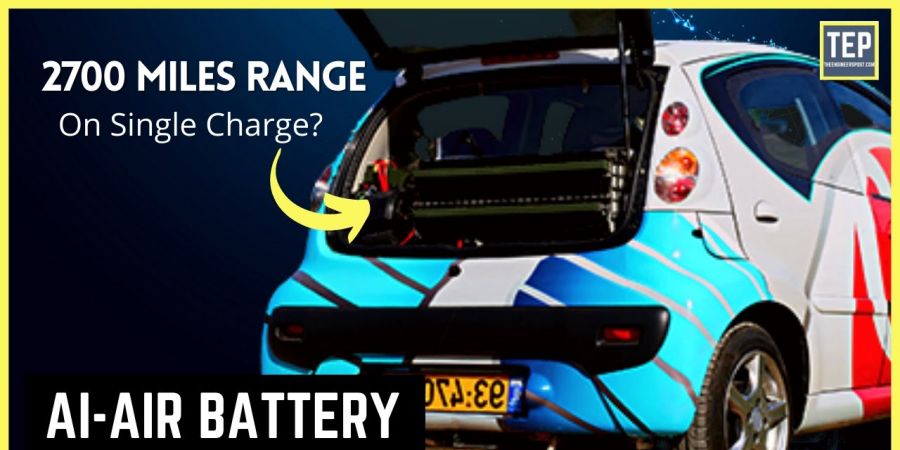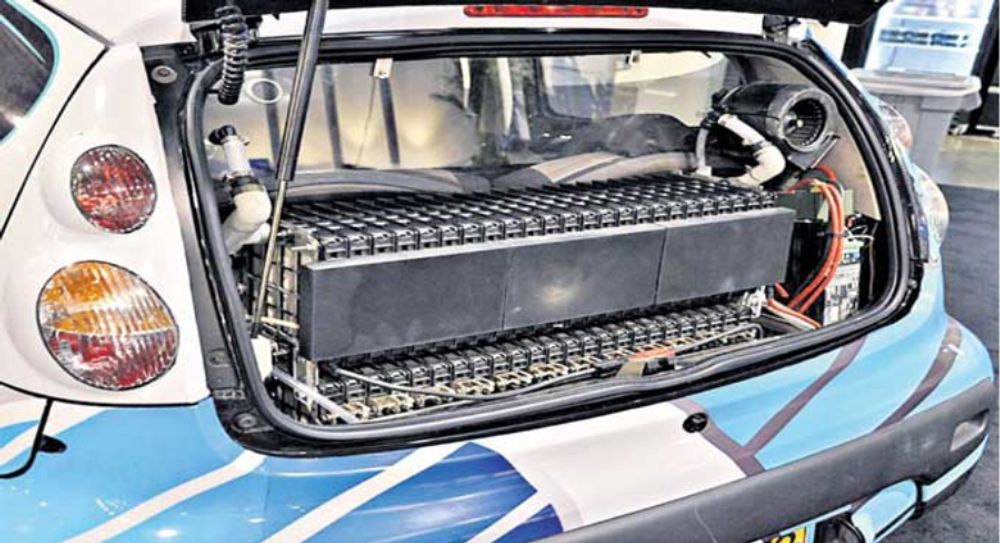

Aluminum air battery (Al-air battery) is a type of batteries with high purity Al as the negative electrode, oxygen as the positive electrode, potassium hydroxide or sodium hydroxide as the electrolyte solution.
Aluminium–air batteries (Al–air batteries) produce electricity from the reaction of oxygen in the air with aluminum.
The working of an Al-Air battery is pretty simple for it uses aluminium alloy plates as anode, water as electrolyte and an air electrode as cathode.

Basically, the air from the atmosphere gets sucked into the air cathode system which contains a catalyst. Oxygen in the air gets separated and reacts with water to generate Hydroxide (OH-) ions.
Ionic oxygen (O+) then reacts with the anode which leads to the formation of Aluminium Trihydroxide (Al(OH)3). This reaction causes energy to be released in the form of electricity.
In the aluminium-air battery, developed by Phinergy, energy is released when aluminium reacts with oxygen in ambient air to produce aluminium hydroxide. Due to its light weight and high energy density, an aluminium-air battery significantly increases the driving range of electric vehicles. It also enables quick ‘re-fuelling’ and eliminates the need for expensive nationwide charging networks. As a result, aluminium-air batteries are expected to make EV adoption more convenient and accelerate the transition to zero-emission mobility. An added benefit is that the aluminium hydroxide in the battery can be recycled to recover aluminium.
Aluminium–air batteries are primary cells, i.e., non-rechargeable. Once the aluminium anode is consumed by its reaction with atmospheric oxygen at a cathode immersed in a water-based electrolyte to form hydrated aluminium oxide, the battery will no longer produce electricity.
IOC Phinergy, a joint venture between Indian Oil Corporation (IndianOil) and Israel's Phinergy, which specialises in hybrid lithium-ion and aluminium-air/zinc-air battery systems, is working to develop a blueprint for establishing facilities in India, even as real-world tests on vehicles provided by Mahindra & Mahindra and Tata Motors are already underway. In addition, the company last year also received letters of intent from Maruti Suzuki and Ashok Leyland.
Advantages :
Al–air batteries have the potential to satisfy consumer needs. The wide range of applications (from vehicles to marine systems), environmentally benign reactions, use of ambient air and the abundance of aluminum make Al–air system a promising source of energy for the future. However, the present Al–air battery technology, in our opinion, still requires establishing the industrial scalability of the electrodes and the electrolyte.
